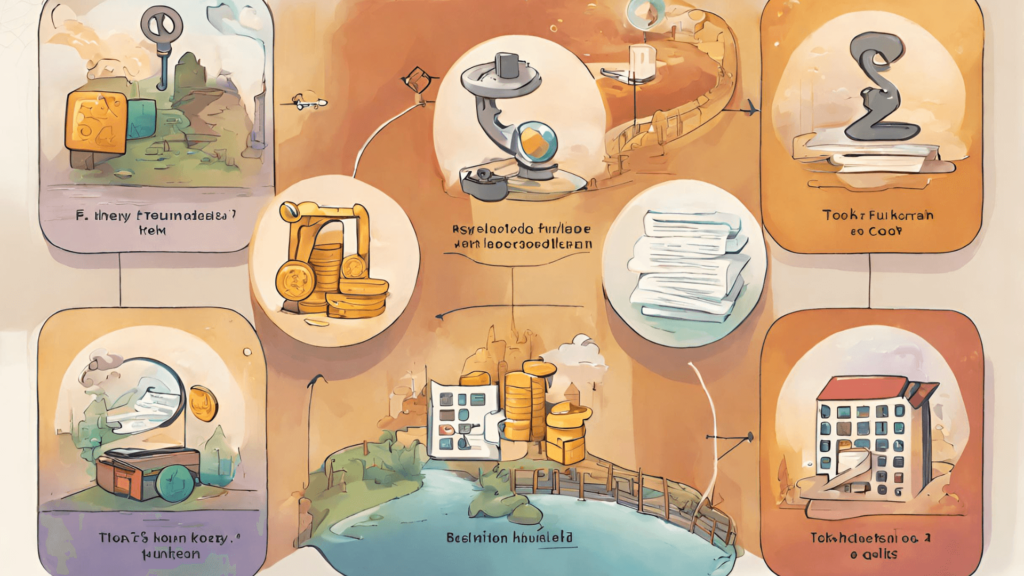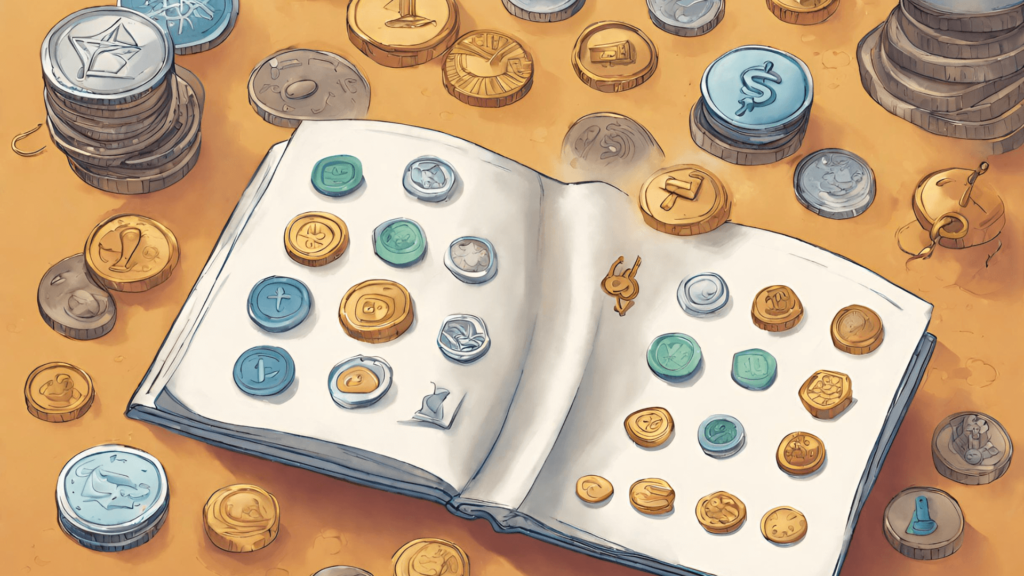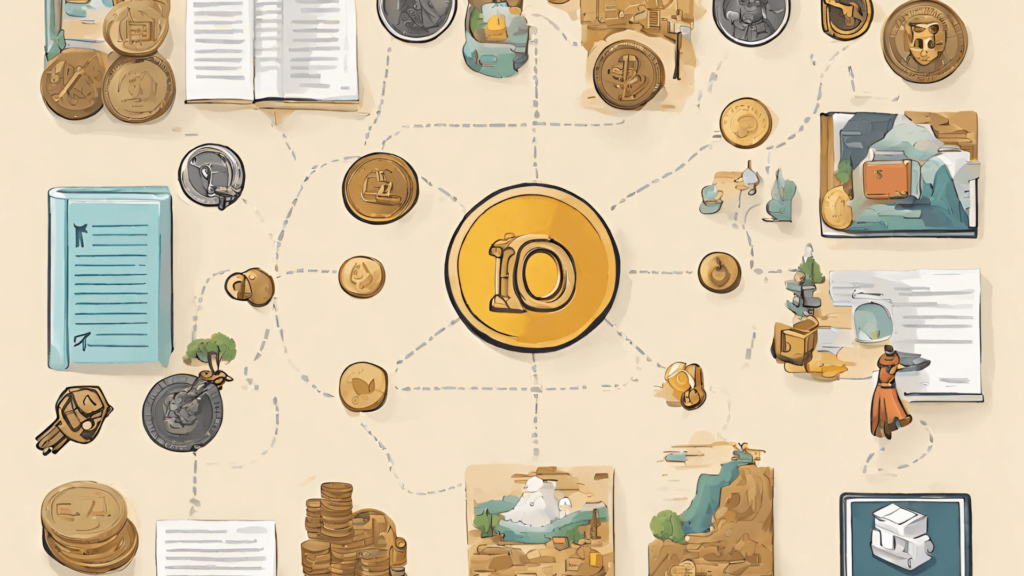A Beginner's Guide to Tokens: Understanding the Fundamentals

A Beginner Guide to Tokens
What are Tokens?
Tokens are digital assets that are built on blockchain technology. They represent a wide range of values, from cryptocurrencies like Bitcoin and Ethereum to various utility and security tokens. These tokens serve different purposes within their respective ecosystems.
Key Characteristics of Tokens
Tokens have several important characteristics that distinguish them from traditional forms of currency. First, they are decentralized, meaning they are not controlled by any central authority. Second, they are transparent, as all transactional information is recorded on the blockchain. Lastly, they are secure, as the use of cryptographic algorithms ensures the integrity of the transactions.
Token Use Cases and Benefits
Tokens have a multitude of use cases and benefits across various industries. They can be used for online purchases, remittances, voting systems, decentralized finance applications, and even for tokenizing physical assets. Some of the benefits of using tokens include lower transaction costs, increased efficiency, and improved transparency.
Types of Tokens
There are different types of tokens that serve different purposes in the digital realm.
Utility Tokens
Utility tokens are designed to provide access to a particular service or platform. They are often used in decentralized applications (DApps). For example, in a gaming platform, users can purchase tokens to unlock additional features or buy in-game items.
Security Tokens
Security tokens represent ownership in an underlying asset, such as stocks or bonds. They are subject to securities regulations and provide investors with legal rights. Security tokens offer a secure and efficient way to trade assets on the blockchain while complying with financial regulations.
Asset-backed Tokens
Asset-backed tokens are tokens that are backed by physical or real-world assets, such as real estate, precious metals, or artworks. These tokens provide fractional ownership of the asset, making it easier for individuals to invest in traditionally illiquid assets.
Tokenomics: Economics of Tokens

Token Creation and Distribution
Token creation and distribution occur through various methods, including Token Generation Events (TGEs), Initial Coin Offerings (ICOs), and Security Token Offerings (STOs). TGEs involve the release of new cryptocurrency tokens on the blockchain, while ICOs and STOs allow individuals to invest in newly issued tokens.
Token Value and Utility
The value of a token is influenced by various factors, including supply and demand dynamics and market speculation. Token utility refers to the usefulness of a token within its ecosystem. For example, utility tokens may grant access to specific services or provide discounts on platform fees.
Token Governance and Decentralization
Token governance refers to the mechanisms by which token holders can participate in decision-making processes within a token ecosystem. Token holders may have voting rights on protocol upgrades, funding decisions, or other critical aspects of the token’s governance. Decentralization is a key aspect of token ecosystems, allowing for greater transparency and avoiding concentration of power in the hands of a few.
Building on Blockchain: Token Standards and Technologies

Building on Blockchain: Token Standards and Technologies
ERC-20 Tokens
What is ERC-20?
ERC-20 is a token standard on the Ethereum blockchain that defines a set of rules and functionalities for creating and interacting with tokens. It ensures compatibility between different tokens and facilitates seamless integration with decentralized exchanges and wallets.
How to Create ERC-20 Tokens
Creating ERC-20 tokens requires knowledge of smart contract development and the Solidity programming language. Developers can use popular frameworks like Truffle or Remix to write and deploy their token contracts on the Ethereum network.
ERC-20 Token Adoption and Limitations
ERC-20 tokens have gained widespread adoption due to their compatibility with existing Ethereum infrastructure. However, they have certain limitations, such as scalability issues and high transaction fees during times of network congestion.
Non-Fungible Tokens (NFTs)
Understanding NFTs
Non-fungible tokens (NFTs) are unique digital assets that cannot be exchanged on a one-to-one basis like cryptocurrencies. Each NFT has a distinct value and ownership, making them ideal for representing digital collectibles, unique artworks, or even virtual real estate.
Applications of NFTs
NFTs have found applications in various domains, including digital art, gaming, virtual real estate, and music royalties. Artists can tokenize their creations, allowing for easy ownership transfers and monetization opportunities.
Tokenizing Unique Assets with NFTs
NFTs enable the tokenization of unique assets that have traditionally been difficult to trade or fractionalize. Real estate, intellectual property rights, and rare physical collectibles can all be represented by NFTs, opening up new possibilities for liquidity and investment.
Other Token Standards and Technologies
ERC-721 Tokens
ERC-721 is another token standard on the Ethereum blockchain that focuses on representing non-fungible assets. It allows for the creation of unique tokens with distinct properties, making them suitable for applications such as digital identity or supply chain tracking.
ERC-1155 Tokens
ERC-1155 is a hybrid token standard that the fungibility of ERC-20 tokens and the uniqueness of ERC-721 tokens. It allows for the creation of both fungible and non-fungible tokens within the same smart contract, reducing gas costs and improving efficiency.
Considerations for Token Standard Selection
When selecting a token standard, developers need to consider factors such as the specific requirements of their project, the level of interoperability needed, and the existing ecosystem support. Each token standard has its own advantages and use cases, so it’s important to choose the one that aligns with the project’s objectives.
Token Security and Legal Considerations
Security Risks and Vulnerabilities
Tokens and their associated smart contracts can be vulnerable to various security risks. Hacking and token theft, as well as vulnerabilities in smart contracts, pose significant threats to token holders and the overall ecosystem. It is crucial to implement robust security measures to mitigate these risks.
Security Measures and Best Practices
To enhance token security, several best practices should be followed. These include implementing multi-factor authentication, using cold storage wallets to store tokens offline, regularly conducting security audits and assessments, and staying updated on the latest security protocols.
Legal and Regulatory Framework
The legal and regulatory framework surrounding tokens varies across jurisdictions. Security tokens, in particular, are subject to securities laws and require compliance with Know Your Customer (KYC) and Anti-Money Laundering (AML) regulations. It is essential to ensure compliance with relevant regulations to avoid legal issues.
Token Adoption and Future Outlook
Real-world Applications of Tokens
Tokens have a wide range of real-world applications. They can be used to tokenize assets such as real estate, enabling fractional ownership and easier transferability. In the field of decentralized finance (DeFi), tokens play a crucial role in enabling lending, borrowing, and yield farming. Additionally, tokens can be used to tokenize intellectual property and royalties, revolutionizing the way creators are compensated.
Challenges and Opportunities for Tokenization
While tokenization offers numerous opportunities, there are also certain challenges that need to be addressed. Scalability and interoperability are significant hurdles that need to be overcome for widespread adoption. Educating users about the benefits and use cases of tokens is another challenge. Furthermore, integrating tokens with traditional financial systems could present both opportunities and complexities.
Predictions for the Token Economy’s Future
The token economy is expected to see continued growth across various industries. As more assets and services are tokenized, we can expect increased adoption and integration with existing systems. Regulatory developments, as well as government adoption of blockchain and tokenization, will significantly impact the future of the token economy. These developments have the potential to disrupt traditional financial systems and provide new opportunities for innovation.
Summary
From understanding the basics of tokens to exploring tokenomics, token standards, security considerations, and future prospects, this comprehensive guide provides valuable insights into the world of tokens.
FAQs
Q: What is the difference between utility and security tokens?
A: Utility tokens provide access to a specific service or platform, while security tokens represent ownership in an underlying asset and are subject to securities regulations.
Q: How can I create my own token?
A: Creating a token requires knowledge of blockchain technology and smart contract development. Various frameworks and tools are available to help developers create their own tokens.
Q: Are tokens legally recognized?
A: The legal recognition of tokens varies across jurisdictions. Some tokens, especially security tokens, are subject to existing securities laws and regulations.
Q: What are the benefits of tokenizing assets?
A: Tokenizing assets offers increased liquidity, fractional ownership, and easier transferability. It also opens up new investment opportunities and reduces the need for intermediaries.
Thank you for taking the time to read A Beginner’s Guide to Tokens: Understanding the Fundamentals. We genuinely appreciate your interest and hope the information provided was valuable to you.
Your support means the world to us. We strive to deliver insightful and engaging content that resonates with our audience. Your feedback and engagement are incredibly valuable and help us improve.
Stay tuned for more informative articles. We are committed to providing you with quality content that matters.
Once again, thank you for being part of our journey.




